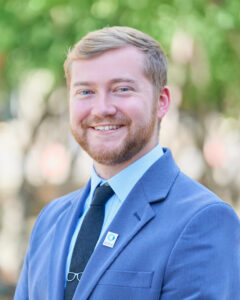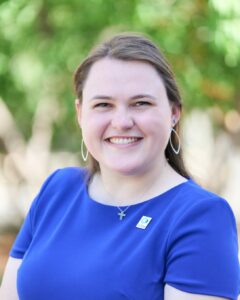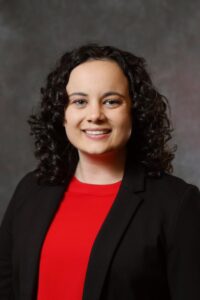
Photo credit: Getty Images
What prospective associate ODs want from you.
Jan. 31, 2024
Review of Optometric Business (ROB) reached out to five optometry students to learn what they are looking for in an employer. Here is what they told us.
 Derek Bryant
Derek Bryant
Oklahoma College of Optometry at Northeastern State University, class of 2025 Trustee and Professional Development Project Team Lead, American Optometric Student Association
What I am looking for is managerial experience. Whether I find myself in a practice that is established or in a budding practice, experience managing a budget for a business and managing people is one of the biggest things I will be looking for in a practice.
For example, while I totally understand that an established doctor may not want to turn over the financial reins to a new hire immediately, I will be looking for someone who is willing to teach me the tools of the trade so that someday I could handle the finances myself, whether in the same practice or a practice of my own.
The same goes for managing staff. While an established doctor may not allow me to hire on my own, I would expect that they would allow me to be involved in the process and slowly hand over the reins as they see fit. Other things that are important to me are whether the practice is decently established in the community, how satisfied the staff are with their jobs and the overall demeanor of the office, but those things should all be standard. Students like myself, who are looking to be an employer one day as opposed to an employee, are looking for a practice that helps them grow, not just one that pays the bills.
 Melissa Rezk
Melissa Rezk
University of California, Berkeley, Herbert Wertheim School of Optometry & Vision Science, class of 2024
Secretary, American Optometric Student Association
There are overarching factors that are crucial to consider and can accelerate your career into what you wish to build it as. I like to call them the four L’s. My four L’s are loyalty, learning, location and living.
1. Loyalty
In any healthcare profession, loyalty is the cornerstone on which trust, relations and exceptional care are based. It is what binds your career with those you are working with and with the patients you are treating. The loyalty you have in the workplace, and for the well-being of your patients, are what will make you an exceptional doctor and help you succeed in the practice you work in.
2. Learning
As a doctor, it is important to understand that learning is a lifelong commitment. It is necessary to remain at the forefront of the field. An environment that thrives is one that promotes the commitment to continually grow in clinical excellence and professional development.
3. Location
The location of the practice and the demographics of the patient population are critical to consider. Does it align with your personal preferences, clinical interests and expertise? These are significant to consider since it will impact your personal and your professional life.
4. Living
How will the practice you choose to be a part of help in your day-to-day life? The important things to consider here are priorities of work-life balance and its impact on your well-being. All previous points all feed into this vital aspect. It is essential to question whether the practice you choose to be a part of brings you fulfillment in your personal and professional life.
 Jeffrey Wilson, Sr.
Jeffrey Wilson, Sr.
The University of Houston College of Optometry, class of 2025
Trustee, American Optometric Student Association
The pivotal factors in selecting where to begin my career revolve around flexibility, location and opportunities for growth. Considering I have two children, the flexibility of the work environment and the suitability of the location are paramount in my decision-making process. These elements are crucial to striking a balance between professional commitments and family responsibilities.
Moreover, the potential for professional advancement holds significant importance to me. I envision owning my own practice in the future, and therefore, joining a workplace that offers avenues for long-term growth is essential. Ideally, I aim for a place where I can envision building my career for the long term.
In addition, I value patience and mentorship in the workplace. While academic preparation equips us with the necessary tools, having experienced guidance and mentorship can significantly enhance my ability to use these tools effectively and efficiently. This support is particularly vital during the early stages of my career as a practicing optometrist.
 Claire Saylor
Claire Saylor
UMSL College of Optometry, class of 2024
Vice President, American Optometric Student Association
One of, if not the most important, thing will be the culture of an office and really seeing if it’s a place that I will feel comfortable working. I don’t ever want to get to a place where I dread going to work and the environment that the owner creates, and my co-workers will have a huge impact on that. Ultimately, if there is a culture I feel comfortable working in, then it’s likely a place that a patient will feel comfortable coming to, a place where they are seen and heard.
A few other things that I will take into consideration are the location and type of practice. I want to practice small-town, rural optometry in a private practice. What are the future options for me and the practice? Will I have the option to buy into the practice? That’s something that I am striving for. I was business management minor while I was in undergrad with the intent to have ownership in my future practice.
Other Articles to Explore
I’d also love to work in a multi-doctor office. When I graduate, I know I’ll be ready to practice, but I would love to have some mentors in the office as a young doctor. Some may say the salary or loan repayment options is what matters the most, but I don’t plan on automatically going to the place that pays me the most. If all my other priorities align with the highest-paying job, then great, but that will not be the sole factor that I consider.
 Emily Benson
Emily Benson
The Ohio State University College of Optometry, class of 2024
President, American Optometric Student Association
The importance of great staff and office culture cannot be understated. Students pay attention to this when searching for opportunities, especially with the known staffing issues throughout the country. We love optometry, and working with great people makes our job even better! When thinking about resources, the first thing that comes to mind is an OCT. Students today learn how to evaluate retinal pathology with strong emphasis on OCT imaging, and this equipment helps us feel more confident in our management plans for our patients with retinal disease.
Many new grads may also prefer to have equipment for any sub-specialties they may be interested in. I am currently applying to contact lens residencies, and would like to fit specialty lenses in my future practice, so a corneal topographer or Pentacam would be necessary for my future practice.
Another thing that I make sure to tell everyone who asks about topics important to students as they enter the workforce is that we are all worried about paying off our student loans. Optometry school has always been expensive, but inflation in recent years has increased our everyday costs, which many of us must use loan money to pay for.
Many students, including myself, are taking out much more in loans than originally anticipated for the year. That, along with lack of knowledge of different practice modalities, means many students end up signing with the practice that offers the highest starting salary instead of considering opportunities that may be lower paying, but a better practice environment.

























